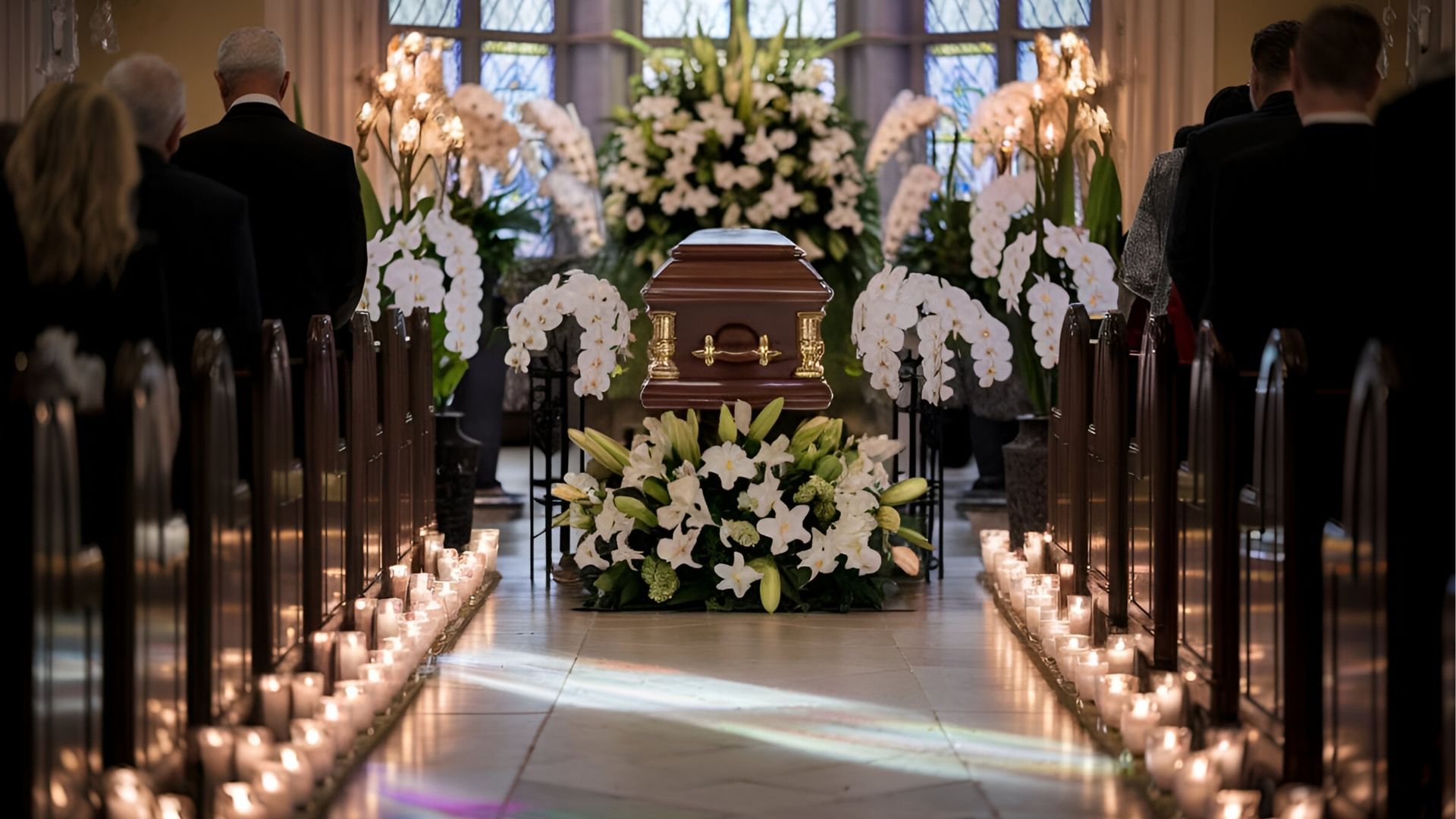What happens if you can't afford a funeral in the UK?
Even if nobody can afford to pay, there can still be a funeral. Explore your options and learn how to access financial help.

There's no getting around the fact that funerals can be expensive.
As trusted independent funeral directors, we try to keep our funeral costs as affordable as possible. But funeral director fees are just one part of the picture. You also have to consider the costs of the burial or cremation, as well as doctors' fees and optional extras like flowers or a headstone.
According to SunLife's Cost of Dying 2025 Report, the average cost of a send-off in the UK is now £9,797. That price includes the funeral itself, plus professional fees and optional extras. But even the simplest kind of attended funeral has reached a hefty £4,285.
With costs increasing nearly every year, it's understandable that paying for a funeral might feel like one financial burden too many.
But what happens if your family can't afford the funeral? How do you pay for a funeral with no money?
The most important thing to know is that there will still be a funeral, no matter your financial circumstances. If nobody can afford the funeral, the local council will pay for a simple ceremony on your behalf. This is known as a 'public health funeral'.
However, that's usually a last resort. Before you go down that route, it's a good idea to look at the other options available to you.
Let's take a look at those options now.
Your options for paying for a funeral when there is no money
Check if there's money in the person's estate
A person's estate is the sum of all their assets when they die. It includes cash, as well as property, investments and personal possessions.
If there's enough money in the estate, that money will be used to cover the cost of the funeral. In other words, if the person who died could afford it, they pay for their own funeral.
If the person left a will, that will should have named an executor to deal with the estate. If there's no will, the responsibility falls to a nominated person called an 'administrator'. It's worth speaking to the executor or administrator about finances if you haven't already.
The problem with this option is that estates take time to process. You'll have to wait until this process (known as 'probate') finishes before you can access any funds. This usually takes between nine and 12 months.
What usually happens is that families pay for the funeral out of their own pockets and recover the money from the estate later. Of course, this isn't much help if you can't afford the funeral right now.
Check if the person who died had a funeral plan
A funeral plan is a way to pay for a funeral before you die. The person who opens the plan pays a little each month. This money goes towards the cost of the funeral.
If your loved one had a funeral plan, it means the funeral costs are covered.
And not just the ceremony. Most plans also include support from a funeral director, plus extras like a coffin and hearse (funeral car).
The downside is that you don't get to choose a funeral director. If you use a funeral plan to pay for the funeral, you'll usually have to use a funeral home nominated by the plan provider.
To find out whether the person who died had a funeral plan, you can use NAFPP's Find My Plan service.
Check if the person had life insurance
If a person has a life insurance policy, they can name people who'll receive a cash payout when they die. You don't have to use this money to pay for a funeral, but you can if you want to.
Some life insurance plans even include funeral cover. That means a guaranteed lump sum will be available to pay for the funeral.

Keep in mind, however, that life insurance doesn't necessarily guarantee a payout. It depends on the type of life insurance the person had:
- Term life insurance: this type of insurance only covers a certain amount of time. If the policyholder dies during this period, you'll get a payout that you can use to help cover funeral costs. However, if they survive beyond the agreed term, you won't receive any money.
- Whole life insurance: whole life policies guarantee a payout, no matter when the policyholder dies. These payouts also tend to be larger than with term life insurance.
If you think your loved one might have had life insurance, it's worth checking through documents to see if you can find evidence of it. You could also try asking their accountant or legal advisor.
Check if you're eligible for financial help
There are several government schemes available to help families pay funeral costs. Depending on your circumstances, you may or may not be eligible.
The Funeral Expenses Payment (England, Wales and Northern Ireland)
The Funeral Expenses Payment is available to people on certain benefits, including Universal Credit and Housing Benefit.
If you're eligible, you'll get a cash payout that can help cover the cost of:
- Burial fees
- Cremation fees
- Travel arrangements
- Documents, including the death certificate
You'll also get up to £1,000 to help pay for other expenses like flowers and funeral director fees.
To find out if you're eligible, check the GOV.UK website – or nidirect in Northern Ireland.
The Funeral Support Payment (Scotland)
The Funeral Support Payment is the Scottish version of the Funeral Expenses Payment. It usually covers some, but not all, of the funeral costs.
You can visit mygov.scot to find out if you're eligible.
The Children's Funeral Fund (England)
The Children's Funeral Fund can cover some of the cost of a child's funeral in England. It covers burial or cremation fees, as well as the cost of a coffin.
The fund is not means-tested. That means it's available to anyone who has lost a child in England.
You can still apply for the Funeral Expenses Payment, even if you get financial help through the Children's Funeral Fund.
At Akshardham Funeral Directors, we offer free cremation services for any person who dies under the age of 16.
Who pays for the funeral if there's no money in the estate and no other ways to pay?
If you've tried all these options and still can't afford the funeral, don't worry. The person who died will still get a dignified send-off.
That's because the local council will pay for the funeral on your behalf. This kind of funeral is known as a 'public health funeral'.
Public health funerals are quite rare. Approximately 600,000 people die in the UK each year, yet there were only around 4,400 public health funerals in 2022 and 2023. That shows that most people who struggle to pay for a funeral manage to get the financial help they need.
But there's no shame in having a public health funeral. The council will make sure that the person who died gets a proper ceremony that follows their beliefs. Members of the council might even attend the ceremony to pay their respects.
However, the ceremonies tend to be very simple, and attendance may be limited. In some cases, councils don't allow family members to go to the funeral.
That's why it's worth looking at other options first. A public health funeral is dignified and respectful, but it's usually considered a last resort.
At Akshardham Funeral Directors, we put compassion first. That's why we offer free funerals for people under 16 – and it's why we always aim to keep our rates as affordable as possible. Do you need our support to arrange a funeral in London? Please call 020 8355 7876 – our lines are always open.












